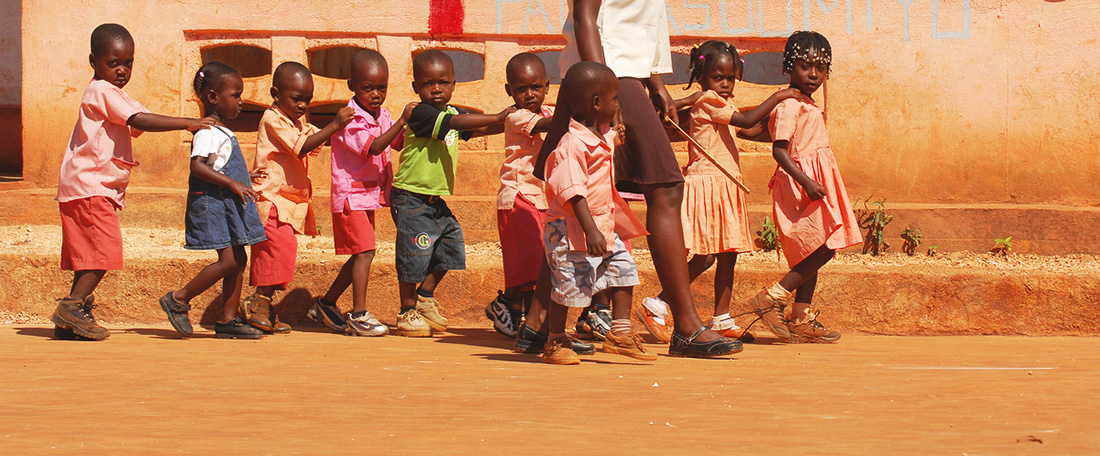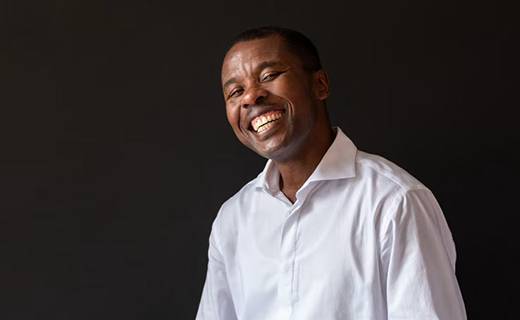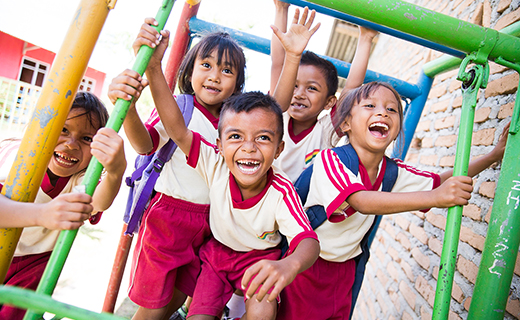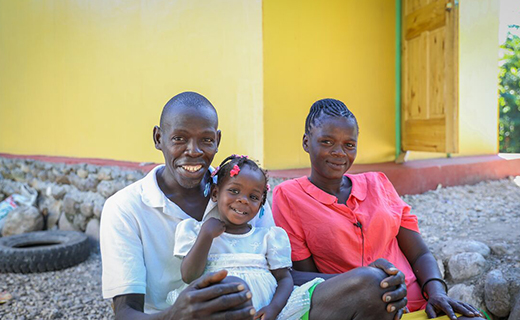Haiti
Capital City: Port au Prince
Population: 10.11 million
Life expectancy: male 62.07 years, female 64.95 years
Population with improved drinking water: urban 64.9%, rural 47.6%
Infant mortality rate: 47.98/1,000
Under 5 mortality rate: 73/1,000
Adult literacy rate: male 64.3%, female 57.3%
Religion: Roman Catholic (official) 54.7%, Protestant 28.5%, voodoo 2.1%, other 4.6%, none 10.2%
Percentage living on less than $1.90 a day: 53.91%
A little bit of history
Once one of the wealthiest nations in the Caribbean, Haiti is now statistically the poorest country in the Western Hemisphere. Its history and former riches are deeply intertwined with the African slave trade, which was established in Haiti as early as 1492, when Christopher Columbus first discovered the island. A slave revolt against the French in 1804 gave Haiti its independence and the country became the first black republic in the world, but further turmoil was to follow. Corruption, political wrangling, civil instability and relentless violence have been part of Haiti’s history ever since.
In 2010 a massive earthquake struck Haiti killing an estimated 220,000, injuring more than 300,000 and leaving more than 1.5 million homeless. Infrastructure across the country was completely devastated and reconstruction is still taking place.
How the country makes a living
As the poorest country in the Western Hemisphere, Haiti’s economy is very fragile. Two-fifths of all Haitians depend on agriculture to make a living and are mainly small-scale subsistence farmers. The unpredictable climate, frequent natural disasters and widespread deforestation make their lives even tougher.
Challenges faced by children
Haiti’s history of slavery is still a reality today, particularly for the country’s children. Families caught in the cycle of poverty often have to send their children to work denying them education and the chance to build a better life. Child labour is a huge problem in Haiti and as many as 500,000 Haitian children are thought to be child slaves. Many are duped into working as domestic servants with wealthier families in the hope that they’ll have a better life. These children, known as restaveks, face hours of back-breaking work every day and are often abused physically and sexually, too.
Compassion in Haiti
Compassion's work in Haiti began in 1968. Currently, more than 102,600 children participate in 293 child development centres.
What sponsored children learn in haiti
Project days in Haiti are generally held on Saturdays. Sponsored children will also attend for a couple of hours after school during the week. During a typical project day, sponsored children will participate in topics such as ...
- 8.00am Breakfast and devotion time. Upon arrival, children are given tea served with snacks, possibly an egg, bread or buns.
- 9.00am Spiritual lessons. Children sing songs and learn Bible stories. Children aged 3-5 are given an illustrated Bible with simple stories. From 6-8 years old, children receive an illustrated Bible with more stories. From 9-14, children are given the whole Bible (Old and New Testament). From 15 years old, they receive the whole Bible with study references.
- 10.30am Break time. Children can play in a safe environment and develop friendships.
- 11.00am Social lessons. From conflict resolution to developing healthy self-esteem, children who often come from challenging home environments are taught social and personal skills.
- 12.00pm Lunch and social time. Each child receives a snack, such as sandwiches, juice or milk, or a hot meal, of spaghetti or rice, beans, vegetables, meat and juice. There is a special nutritional programme for malnourished children.
- 1.00pm Health lessons. Children are taught practical health and hygiene tips. Example topics include how to prevent malaria and HIV.
- 2.00pm Letter writing and career planning. Older children work with project staff to identify their strengths and interests, setting realistic goals for their future.
Additional activities offered by projects in Haiti:
- Compassion Haiti holds spiritual retreats during Carnival and Easter time.
- Student clubs are held each Saturday from 9 to 12 or 1 to 5 pm. Vocational activities available are based on the local context of the project. They can include painting, crafts, sewing, computer, music, photography, videography, cooking and foreign language classes.
- Parenting classes including income-generating activities are held once a week.





